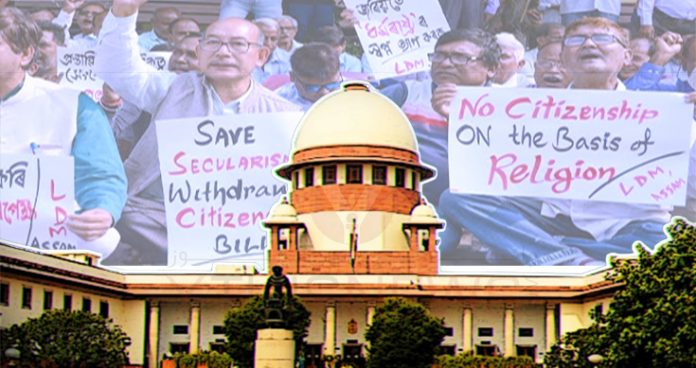Supreme Court dismisses petition against ANTI-CITIZENSHIP LAW held in Delhi, advises to display dissent and dismay in an orderly fashion.
Supreme Court rejects review petition against Anti- citizenship law Imperial court terms protests held in Shaheen Bagh in 2019 to be illegal Justices SK Kaul, Aniruddha Bose and Krishna Murari were the judges of the bench that gave the verdict.
Bilkis Dadi received spot in most influential 100 people after the protests.
READ ALSO| “Release CAA protest leaders immediately” –UN to Indian government
The Imperial Court strictly targeting the protests held in Shaheen Bagh in 2019 advised individuals to apprehend themselves from causing disarray in the peace by invoking their right to protest and to express dissent anytime and everywhere, for this fundamental right comes with a duty and respect for the nation and its government; as it dismissed the review petition on the anti-CAA bills protests conducted in Delhi’s Shaheen Bagh in 2019.
Twelve activists had urged the Supreme Court to review the petition for the protest at Shaheen Bagh in New Delhi had been earlier been termed as illegal by the Supreme Court.
The bench allotted for the case petition included Justice Aniruddha Bose, Justice SK Kaul and Justice Krishna Murari dismissed the review request by giving a statement that the right to protest cannot be invoked anytime and everywhere. There might be chances for some spontaneous circumstantial protests but in case of prolonged disarray, dissent or protest, there cannot and should not be continued over hauling of a public place affecting rights of others and eventually disturbing peace order for the nation.
READ ALSO| SC to hear CAA challenging pleas after Sabarimala issue
The three-judge bench emphasised on the fact that public places cannot be overtaken by force for protests and that public protests must be restricted to specifically allotted designated areas alone.
In the October 2020 verdict, the top court said that Democracy and disagreement work together towards achieving a common goal, a peaceful governance. However it does approve unlawful progressions and riots. Delhi’s Shaheen Bagh had attracted worldwide attention as it emerged as the epicentre of anti-Citizenship Amendment Act protests in 2019 where the protesters which majorly included women and children who sat in the alleged place sat for more than three months.
READ ALSO| Shaheen Bagh shopkeepers feel the heat of anti-CAA protests
Due to this prolonged display of dissent, the Shaheen Bagh protests had gathered worldwide attention and eventually resulted the Time Magazine honouring the 82-year-old Bilkis dadi, the face of the revolution, by including her in the list of one of the 100 most influential people of 2020.







